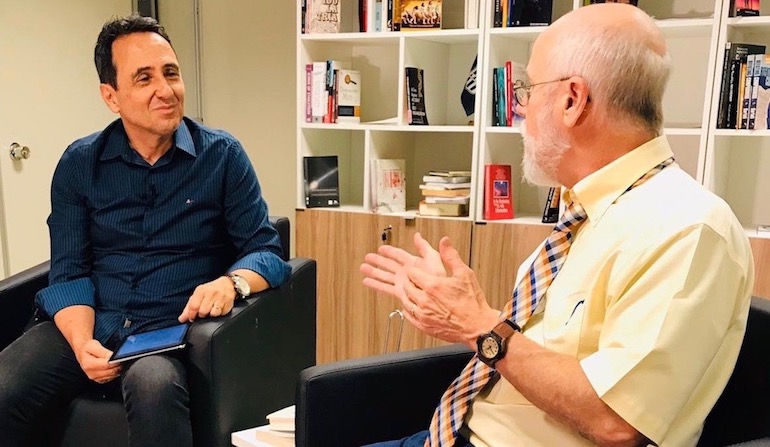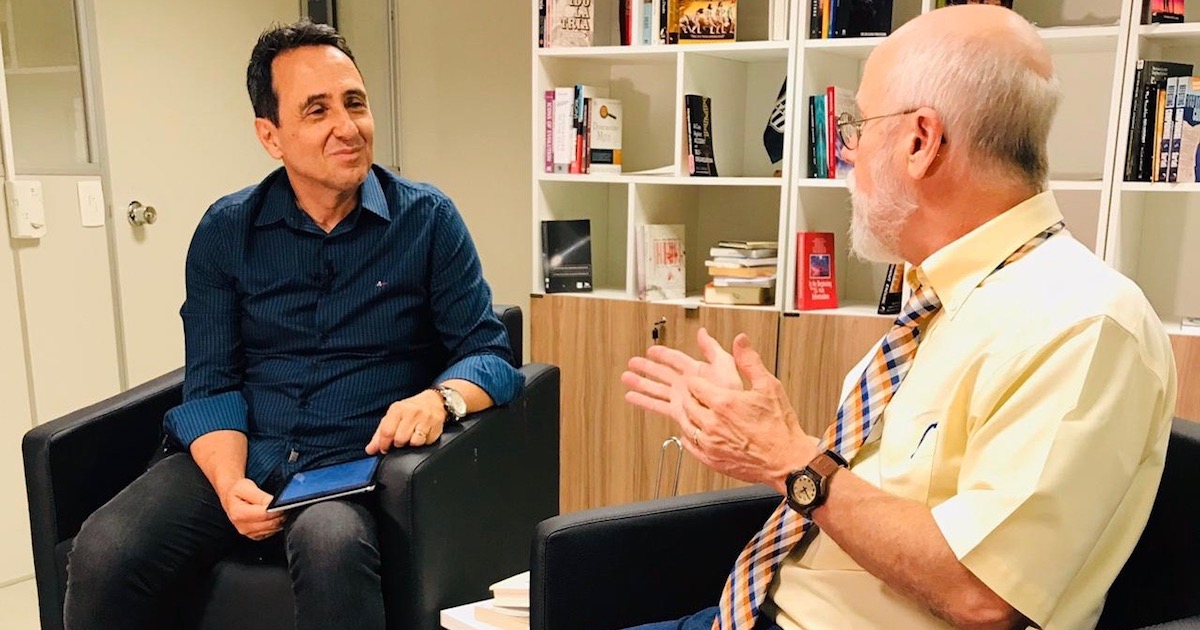 Evolution
Evolution
 Intelligent Design
Intelligent Design
World Magazine: Darwin Devolves Is Science Book of the Year; Foresight Makes the Short List


Hearty congratulations to Discovery Institute authors Michael Behe and Marcos Eberlin for new praise they’ve received for their recent books! Dr. Behe’s Darwin Devolves: The New Science About DNA That Challenges Evolution was recognized by World Magazine as Science Book of the Year:
Darwin Devolves is our Science Book of the Year because it shows that the evolutionary process can build or create nothing at the genetic level, but it can make a creature look different.
World editor-in-chief Marvin Olasky elaborates:
Michael Behe, a 67-year-old biochemistry professor who has taught at Lehigh University since 1985, has helped to create nine children and two major theories.
His first book, Darwin’s Black Box, focused on “irreducible complexity,” the idea that major evolutionary change requires dozens of small changes to happen all at the same time, an event so statistically improbable as to be virtually impossible.
Behe’s new book, Darwin Devolves, focuses on how “Darwinian processes nicely account for changes at the species and genus levels of biological classification, but not for changes at the level of family or higher” — in other words, microevolution but not macroevolution.
Behe’s explanation: “The heyday of Darwin’s theory took place in the absence of answers to very basic biological questions such as, among others: What is the nature of a gene? Exactly how is genetic information physically passed to an offspring? Beginning in the 1940s with the discovery that DNA — not protein or something else — is the genetic material, experimental work progressively uncovered more and more basic facts of molecular biology.”
Who Let the Dogs Out?
In an accompanying interview, J.C. Derrick asked Behe, among other things, about an evolutionary icon that celebrity atheist Richard Dawkins once tried to taunt Behe with in a New York Times book review: dogs. According to this Darwinian talking point, the fact that humans have rapidly formed our canine friends into such a variety of shapes provides strong evidence that blind nature could generate the full, spectacular array of biological novelties in life’s history, with no tools at its disposal but chance and natural selection. Behe knocks that one down:
Popularizers of evolution said if we can breed dogs that are so different from each other and only do it in the past few hundred years, how much better could nature do? But again, we didn’t know what was going on in the biology of these dogs. In the past 10 years, the entire genomes of many different dog breeds have been sequenced. And again, it turns out if you want a Chihuahua, you can break one of the genes involved in growth. If you want French poodles with curly hair, you break a gene involved in hair growth. If you want a dog with a short muzzle, you break a gene involved in facial shape development.
Also Up for Praise
Meanwhile, Brazilian chemist Macos Eberlin’s Foresight: How the Chemistry of Life Reveals Planning and Purpose, from Discovery Institute Press, is one of World’s Short List of titles for Science Book of the Year:
Foresight is valuable for its numerous examples of how structures in the natural world reflect engineering solutions more sophisticated than the best human engineers could provide. Eberlin concludes, “There are no demonstrated examples of unguided, mindless processes anticipating and solving problems that require a sophisticated orchestration of fine-tuned parts….Intelligent design thus represents the best and, indeed, the only causally adequate explanation.”
This, of course, comes on top of kudos Dr. Eberlin had already received from, among others, Nobel Prize-winning scientists Brian David Josephson and Gerhard Ertl. Awesome work, Mike Behe and Marcos Eberlin!
Photos: Michael Behe (r.) and Marcos Eberlin (l.) on a recent visit by Dr. Behe to Brazil.
